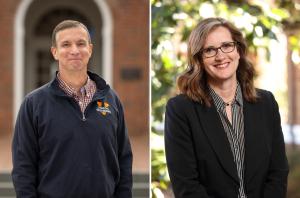Roseanne M. Ford

About
Roseanne M. Ford is a Professor of Chemical Engineering at the University of Virginia. She holds a B.S. degree from the University of Delaware and a Ph.D. from the University of Pennsylvania, both in chemical engineering. She spent the spring of 1995 as a Visiting Professor at the University of Tennessee and Oak Ridge National Laboratory. In 2003 she was a visitor at the USGS in Boulder, CO and a Visiting Professor at EPFL in Lausanne, Switzerland. She recently completed a four-year term as department chair and was Associate Vice President for Research and Graduate Studies from 2004-2010. Professor Ford's research focus is on the transport of chemotactic bacteria in porous media and its impact on bioremediation. She was elected a fellow of the American Institute of Medical and Biological Engineering and was awarded the Cavaliers' Distinguished Teaching Professorship, which is the highest teaching award given at UVa. In 2016 she received the AIChE WIC Excellence in Mentoring Award.
Education
B.S. University of Delaware, 1984
M.S. University of Pennsylvania, 1985
Ph.D. University of Pennsylvania, 1989
Our goal is to improve the efficiency by which chemical pollutants in groundwater are removed using microorganisms that are able to biodegrade them."
